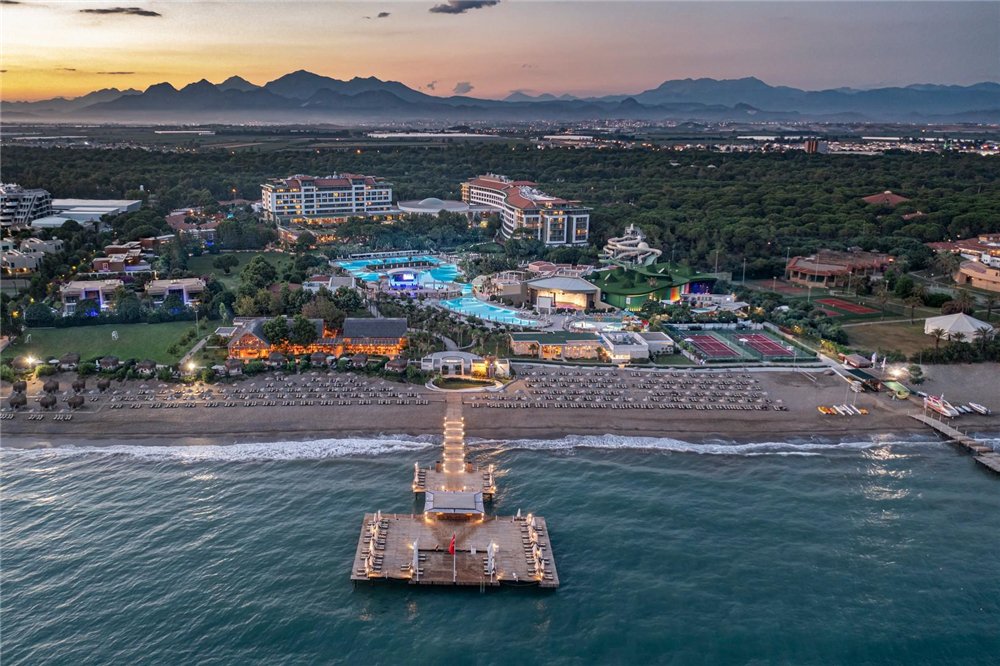
The hospitality industry is constantly evolving, and technology is driving that change. To remain competitive, hotels are adopting automation systems to improve user experience, management efficiency, energy conservation, and profitability.
Ela Excellence Resort Belek, located in the beautiful city of Antalya, has taken this step by implementing HDL automation systems in its 653 rooms and common areas. Located on the beach, with 270 meters of beach, 1,100 square meters of marina and 110,000 square meters of greenery, the hotel is a vacation paradise that offers guests the ultimate experience.
Solution Requirements and Pain Points of Traditional Hotels
Traditional hotel models often encounter several pain points that can be solved through technology. For instance, hotels must enhance the user experience to attract and retain customers, increase management efficiency to minimize manpower investment, conserve energy to avoid waste and reduce costs, and lower operating expenses to increase profitability.
Automation solutions for the hotel
HDL automation systems offer comprehensive solutions to these challenges. In Ela Excellence Resort Belek, HDL Buspro room automation system, HDL RCU and MIX modules, Tile Series thermostats, and Tile Series automation switches and sockets were used to automate 530 hotel rooms. In addition, HDL Intelligent Hotel Door Bell, MUR, Laundry information, DND, smart sensors and Vingcard door lock integration provided a seamless guest experience.
Improve guests’ experience
Reception
The front desk clerk, using Opera, can assist guests with check-in while ensuring that their room is pre-cooled to a comfortable temperature upon their arrival.
Welcome Mode
As the guest opens the Vingcard door lock, the room is filled with bright white light, creating a sense of purity and freshness. During the day, the curtains open automatically, letting in natural light and offering a view of the surrounding landscape. In the evening, the curtains remain closed to ensure privacy and create a cozy and intimate atmosphere.
Scene control
With the touch of a single button, guests can activate different modes, including sleeping mode, warm mode, work mode in their room, which enable the control of all lights, curtains, and TV at the same time to quickly and easily transition to a comfortable environment they need.
Energy Conservation
Public areas
HDL automation systems also offer energy conservation solutions. The HDL KNX automation products were used for lighting On/Off and Universal DIM control in all common areas and landscape. The HDL KNX 24 m Omnisense controlled all floor corridors. As guests walked in the corridor, 5 meters before the 2nd sensor, the lines in the walking area were opened, and lighting was provided. After a certain period of time, the lights in the corridors were turned off with logic, saving energy. The bathroom is equipped with an infrared sensor that automatically turns on the basic lighting and exhaust fan when someone enters.
Bathroom
Lights in guest bathrooms are often left on, wasting energy. Adopting HDL cardless power activation system, once the sensor no longer detects any activity, the light turns off automatically after 3 minutes, while the exhaust fan turns off after 15 minutes. This convenient and energy-saving feature ensures that the bathroom remains well-lit and ventilated when in use, while also conserving energy when not in use. Hotels can there save up to US$2,016 per year in energy costs. This not only reduces energy waste but also helps hotels to reduce their operating costs and improve their sustainability.
Management Efficiency and Cost Savings
The HDL automation system increased management efficiency and saved costs. All room information was monitored and controlled bilaterally with HDL IHMS software over the hotel network system and central switches. The HDL KNX automation system managed restaurant, landscape, lobby, meeting rooms, and all other areas from both central and local touch panels.
HDL IHMS software monitored and sent Check-in, Check-out, and room service status information over the server using OPEX software. The thermostat information in all rooms was integrated with HDL GRMS, and it can send and manage data as Bacnet IP to the BMS software within a total of 10,000 points.
Conclusion
Ela Excellence Resort Belek’s use of HDL automation systems has improved user experience, management efficiency, energy conservation, and profitability. The hotel has differentiated itself from traditional hotels, provided a seamless guest experience, and saved costs. As the hospitality industry continues to evolve, technology will remain a driving force, and hotels that adopt automation systems will remain competitive.






